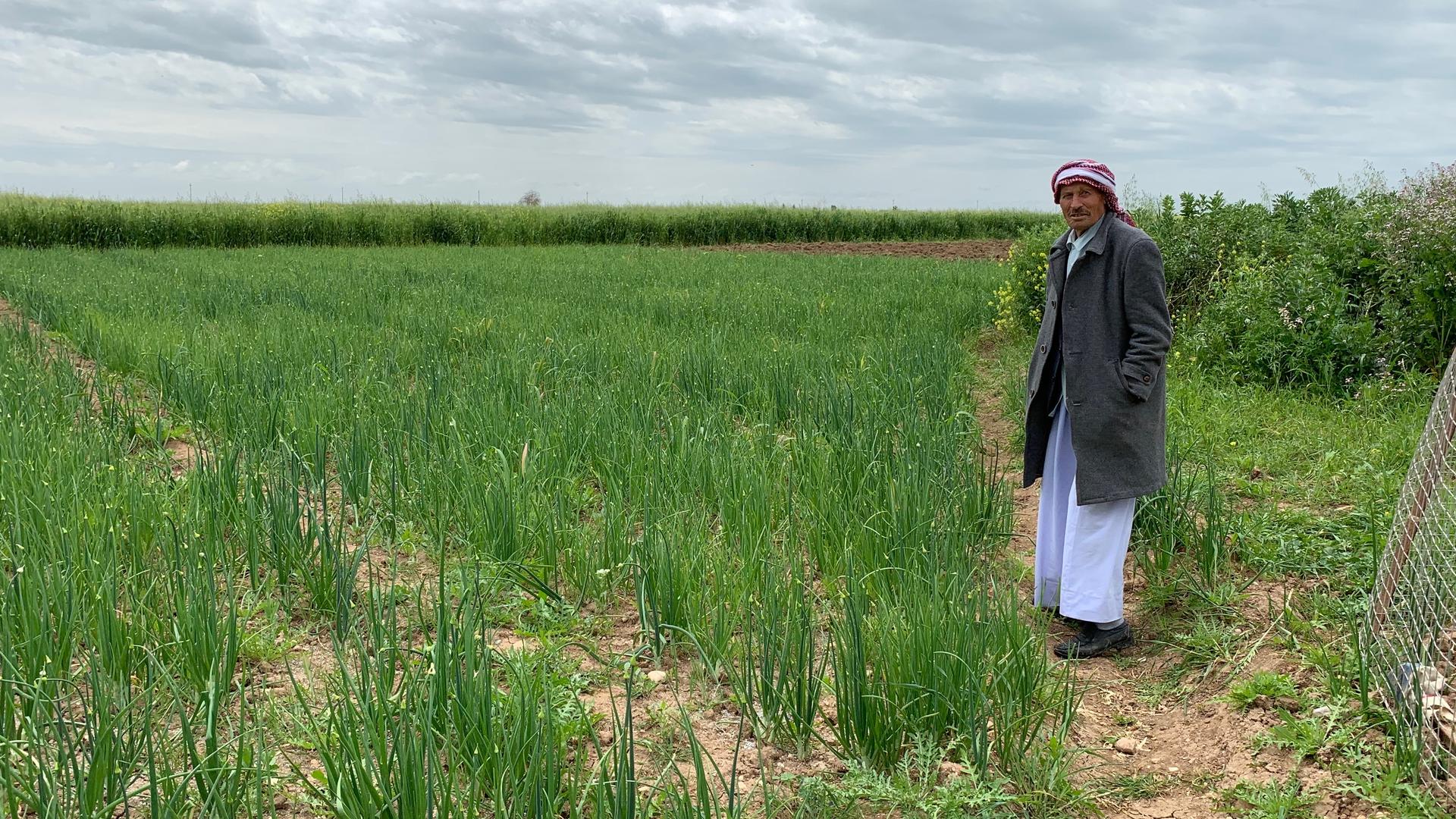Yazidi farmers return home to cultivate farmland after years in exile
A Yazidi man stands in his wheat fields in Sinjar, Iraq.
Walking through Sakvan Sulaiman Hussein’s farmland brings moments of serenity. His 13.5 acres seem vast — spotted with a just a few trees and the sounds of chirping of birds.
Yet the destruction ISIS inflicted when they captured the Sinjar region in northwest Iraq in August 2014 is still visible, especially in the patchy lands Yazidi farmers now struggle to cultivate to regenerate their livelihood.
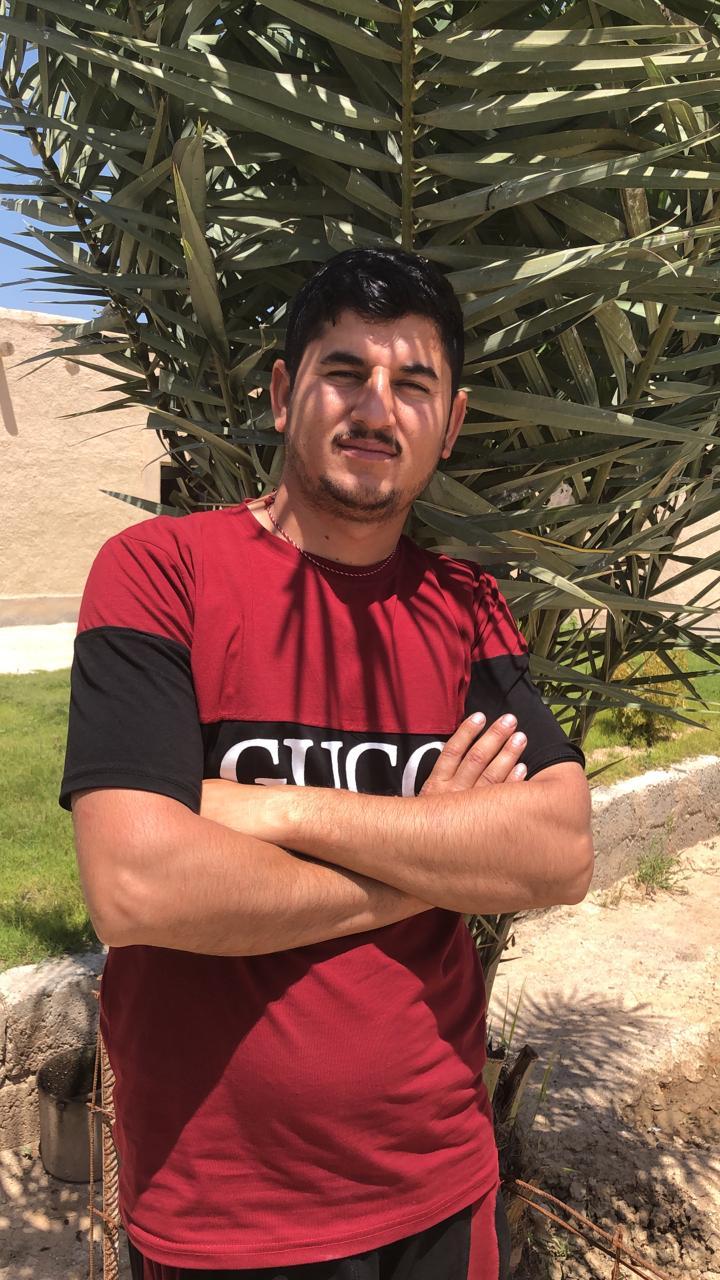
Hussein’s farm is in Tal Qasab, a small village around six miles southeast of Sinjar city, the regional home to the Yazidi community. In its prime, the farm provided barley, wheat, tomato, eggplant, peppers, oranges and olives, not only for Hussein’s family but surplus to be sold at nearby markets.
When ISIS came to Sinjar in 2014 and undertook a genocidal campaign against the Yazidis, whom they consider “devil worshipers,” these farmlands, traditionally the main source of income for families, were wiped out.
In their rampage, ISIS burned and destroyed all of the crops and trees and looted the farms’ property and machinery. It was a tactic used to prevent the Yazidis from returning to a stable life.
Twenty-five-year-old Hussein, with his wife and six children, returned to the destroyed village of Tal Qasab in August 2017 after staying in Qadiya IDP camp near Zakho, in the north of Iraq at the Turkish border. ISIS reduced their house to rubble, stole all of their belongings and destroyed their farm.
“The trees were cut down, some were also burnt, we had a generator for water to supply the fields or farm with water, that was also gone.”
“The trees were cut down, some were also burnt, we had a generator for water to supply the fields or farm with water, that was also gone,” Hussein said.
The city of Sinjar and the surrounding villages were recaptured by Kurdistan Peshmerga and Yazidi fighters with the Sinjar Resistance Unit in November 2015, removing the occupation ISIS had held for 15 months. This created a pathway for the over 500,000 Yazidis who fled the oncoming ISIS fighters to return home from their temporary shelter in IDP camps in the Kurdistan region of Iraq or, more commonly, in informal urban settlements, abandoned or rented houses.
While Sinjar and its villages like Tal Qasab have now been controlled by Yazidi forces for nearly four years, the displaced population still face hurdles returning to their homes.
Related: Yazidi women still fear ISIS months after their defeat
A UNHCR survey conducted in February 2019 indicates only 3% of the internally displaced Yazidis intend to return home within the next year. About 40% say the main reasons for not returning are the “presence of mines” and “lack of security forces.” About 30% said that “damage and destruction of homes” along with “fear of discrimination” kept them from returning, while 13% said they had “no financial means to return.”
Hussein and his family decided to return to their village and farmland to start generating income so their children could continue their studies. Since returning, they rely on the Iraqi government for supplies like flour, sugar and rice to survive. Hussein solely focuses on farm regeneration because his entire future depends on it.
For the first two years after returning to Tal Qasab, Hussein was unable to work in the fields as there was still a risk of landmines left behind by ISIS. Now cleared by Mines Advisory Group (MAG) and G4S, a UN subcontractor, Hussein has started to plant barley, wheat and onions this year.
“After one or two months I will try to harvest it and sell it,” Hussein said hopefully.
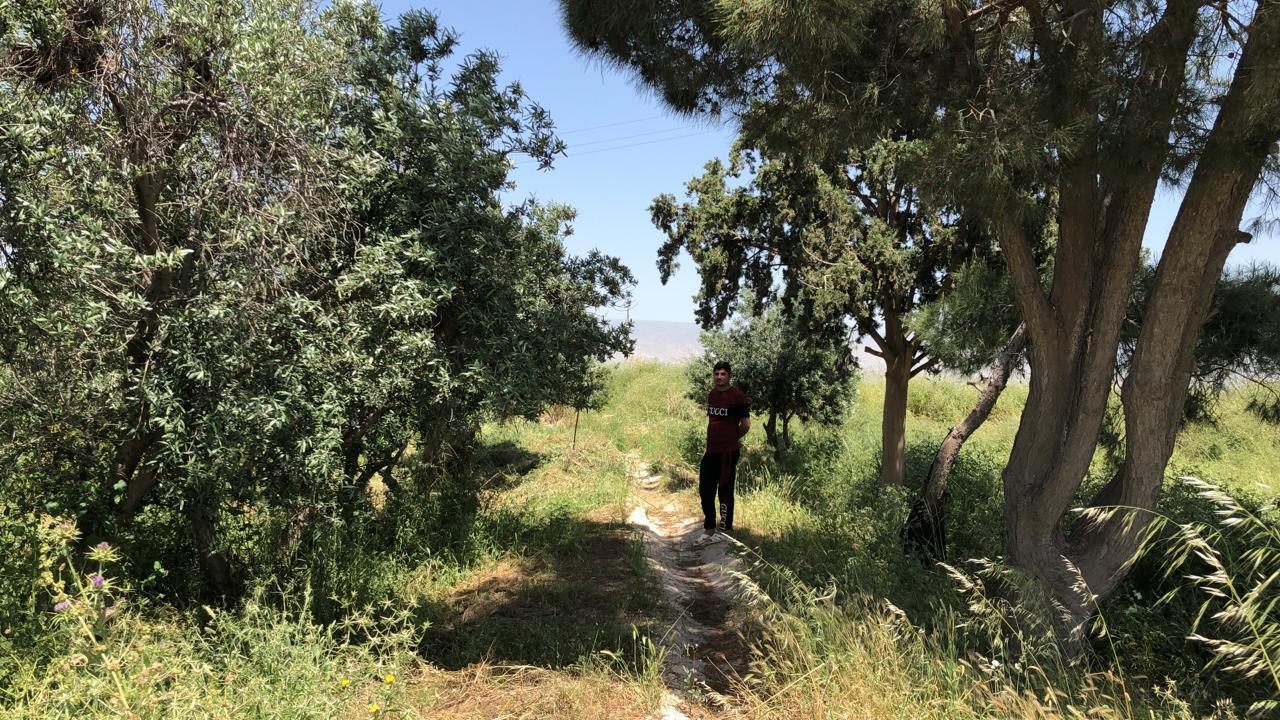
This first plantation was made possible with the support of Nadia’s Initiative, a nongovernmental organization that launched a pilot project in southern Sinjar earlier this year to help Yazidi farmers rehabilitate their fields.
The project was individually tailored to the needs of farmers who had already returned to Tal Qasab but had no way to make an income. Nadia’s Initiative was founded by Nadia Murad, a Yazidi survivor of rape and genocide who won the Nobel Peace Prize in 2016 and used the prize money to fund her initiative that same year.
As part of their agricultural project during the seeding season of October 2018 to March this year, Nadia’s Initiative provided seeds, generators, electrical wires, greenhouses and water tanks to up to 15 households in Tal Qasab.
Nadia’s Initiative Iraq country manager, Silvia Croll, explained their focused efforts on farmers south of Sinjar mountain, like Hussein, in Tal Qasab, is based on ISIS’ targeted focus in this region rather than villages in the north.
Related: Thousands of former ISIS fighters sit in prison
“We are assessing exactly what each farm needs, one farm might have a generator but need a tank, or one would need pipes, so we would give them the pipes,” Croll said.
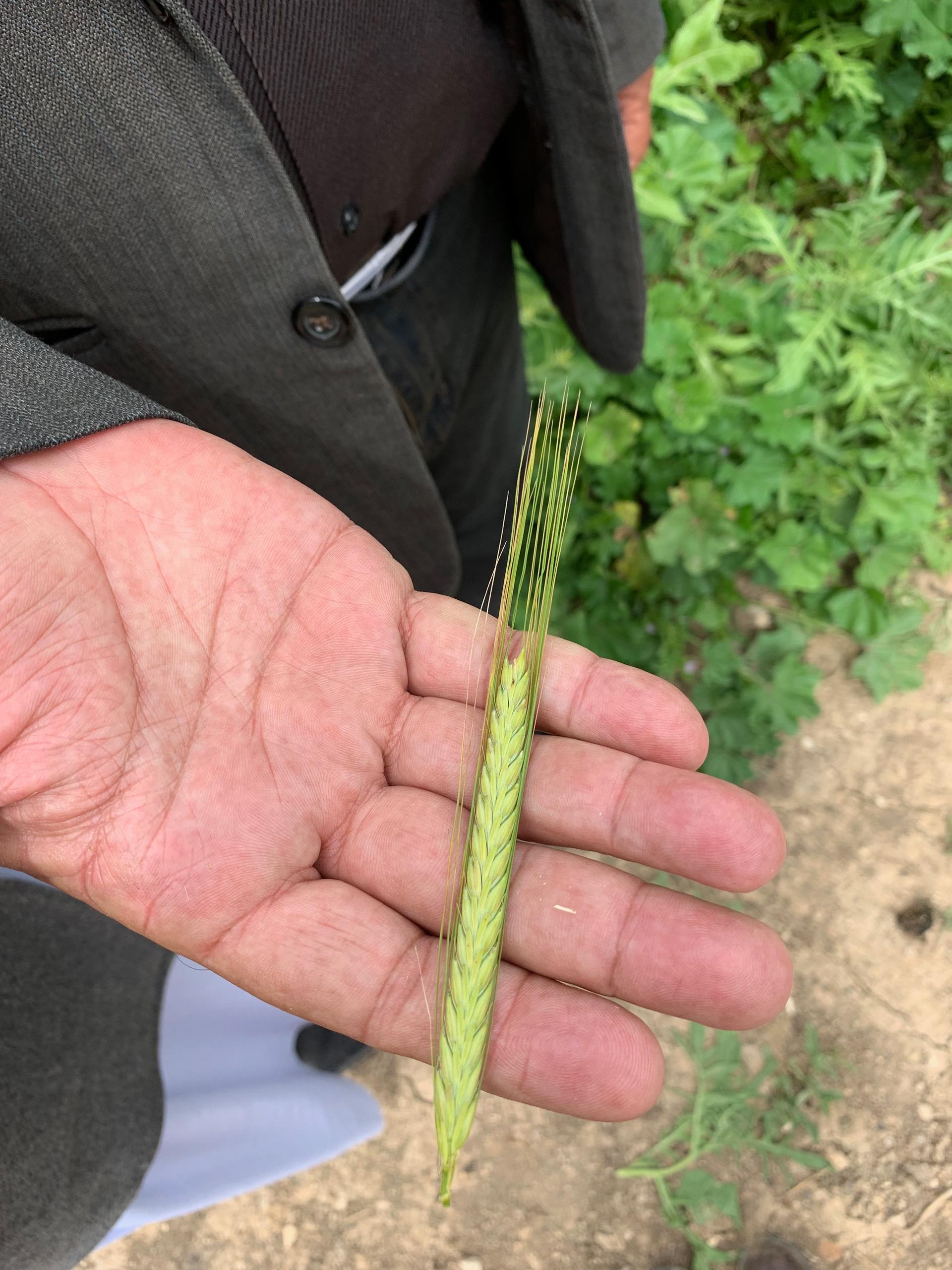
While Hussein has been able to plant a minimal amount of crops for this year, he faces roadblocks to maximizing his farm’s potential. He explained that while he owns a generator, it needs to run on transistors from an energy supply and his village is not yet linked to electricity.
“We are limited in what we could plant this year. Everything we planted depended on the rain,” Hussein said.
“The rain this year was a lot so maybe the rain also helped us, but that is not enough for us, [it] is not sufficient to plant more trees and fields.”
In order to plant full fields of vegetables, such as tomatoes, cucumbers, melons, beans, eggplant and okra, Hussein will need to used irrigation driven by a transistor-run generator.
When asked if there was any government support for agriculture or electricity for Yazidi farmers, Hussein started laughing.
“Not at all, they didn’t help us or others at all,” he said.
Talal Ali, the chief agriculturalist with the Iraqi Ministry of Agriculture Nineveh Branch, stated the average annual rainfall in Sinjar is less than 10 inches and therefore needs a supplementary irrigation project.
Ali acknowledges that Yazidis have always relied on farming as the main source of income and stresses they are now in a “very difficult” situation.
“They are suffering from poverty and all the necessities of life. … [Yazidis] need an efficient, honest and independent administration to manage their areas.”
“They are suffering from poverty and all the necessities of life,” Ali said.
Related: This Yazidi family escaped genocide in Iraq
He went on to say the Yazidis in Sinjar need full government support and attention, though, within society and administration levels, they are “discriminated against and deprived of dignity and rights.”
“They need an efficient, honest and independent administration to manage their areas.”
Croll from Nadia’s Initiative echoes the lack of support from the government and highlights another issue affecting crops.
“Access to fertilizer has been a tricky issue for the whole of northern Iraq because it is said with fertilizers you can produce explosives, [so] people have been prevented from [using them in the past].”
“Access to fertilizer has been a tricky issue for the whole of northern Iraq because it is said with fertilizers you can produce explosives, [so] people have been prevented from [using them in the past],” Croll said.
While there’s no official ban on buying fertilizer, it can only be purchased in Mosul, and Yazidis must secure approval from the Mosul Operations Commander to travel through checkpoints.
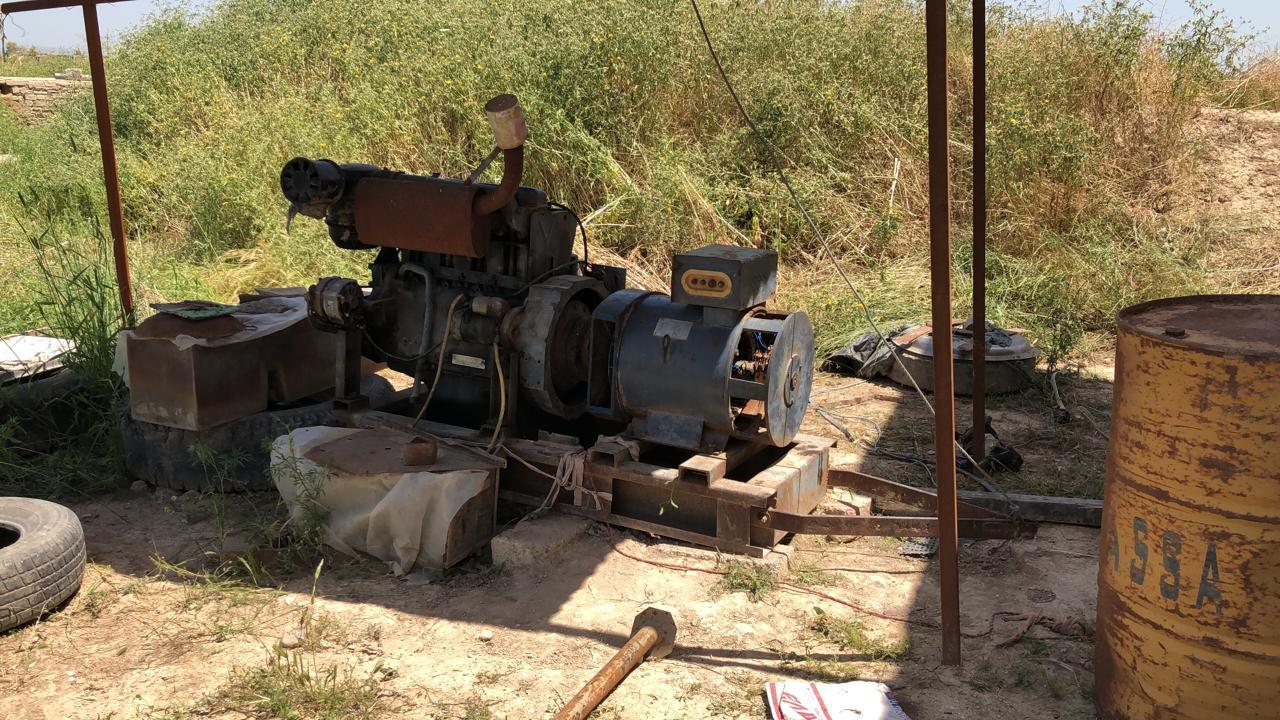
Hussein notices the lack of large international nongovernmental organizations working in southern Sinjar.
“In the north of the mountain of Sinjar, NGOs are working there because those towns weren’t destroyed by Daesh [ISIS],” he said, indicating existing infrastructure is easier for NGOs to show progress.
There is also a greater perceived security risk in accessing or returning to villages south of the mountain due to various Iran-backed militia groups manning the region and ISIS sleeper cells in nearby Arab villages.
Ali at the Ministry of Agriculture stresses the need for more investment in agriculture by international companies and NGOs to encourage Yazidis to return to their homeland and once again make a living from their farms.
Croll is witnessing a slow shift in donor in support: emergency funds earmarked for Yazidis have dwindled now that the crisis is not perceived as “urgent.”
“It’s hard to say we’re not in an emergency anymore, even though we’re not in war [time]… it is still an emergency situation,” Croll said.
While walking through his farm, Hussein can see the only way for the rest of the Yazidi community to kickstart their lives again comes from abroad.
“We want to receive support from all people … so we can plant crops and live better.”
Our coverage reaches millions each week, but only a small fraction of listeners contribute to sustain our program. We still need 224 more people to donate $100 or $10/monthly to unlock our $67,000 match. Will you help us get there today?
